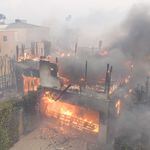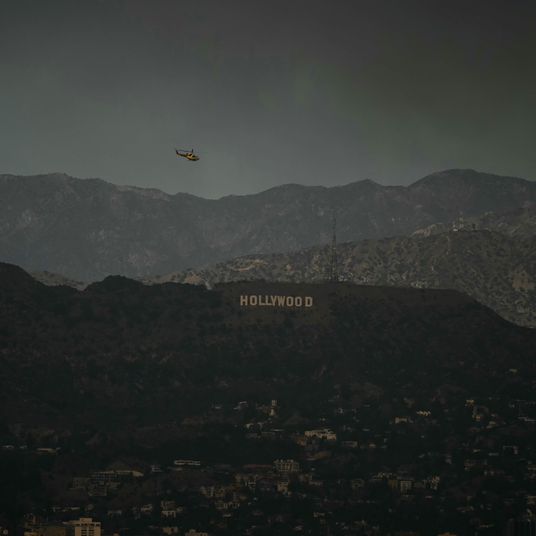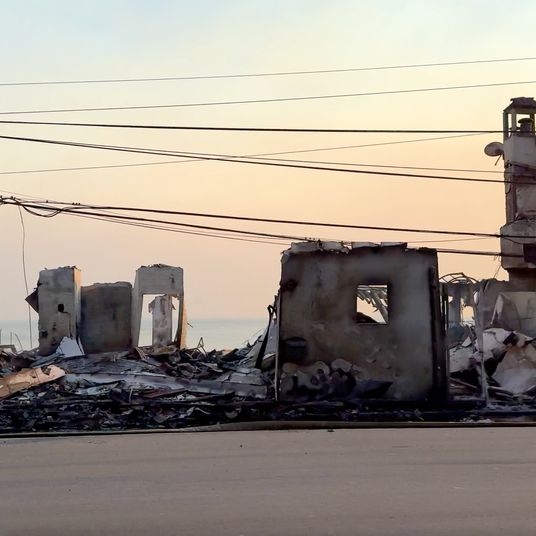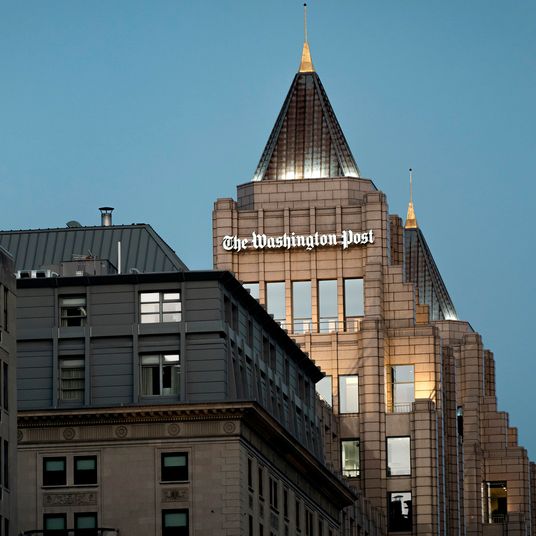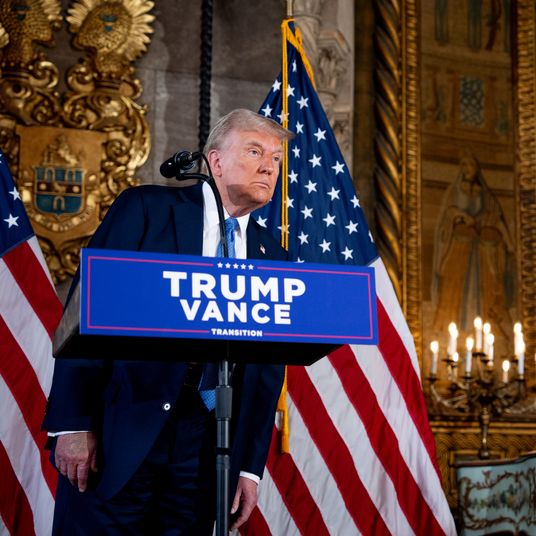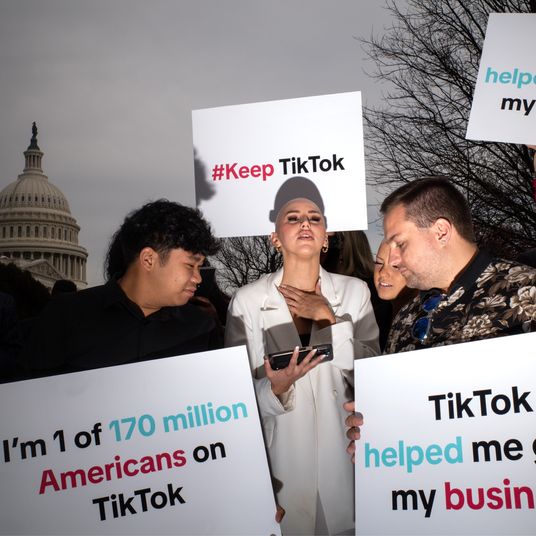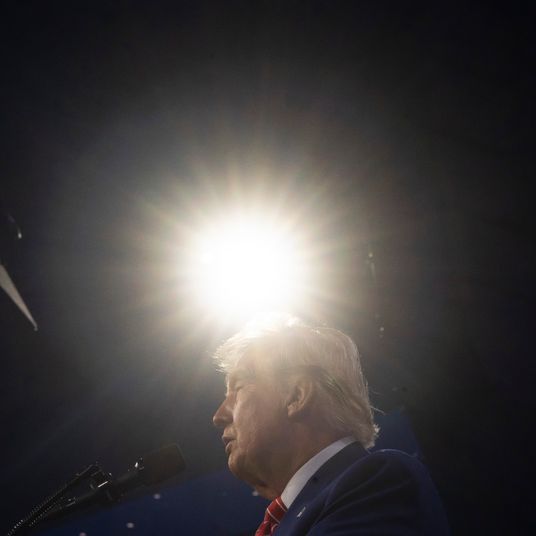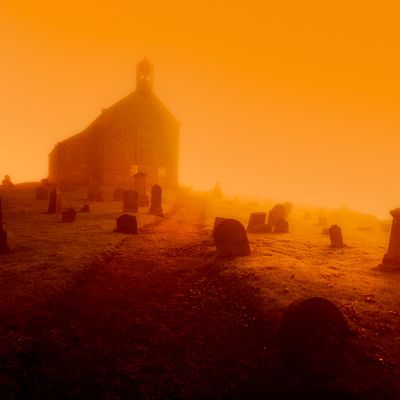
About a year after 9/11, I asked my mother if Jesus would come back before I grew up. She replied, ominously, that He probably would. For years we’d monitored the news, listened for the sound of a trumpet that would split the sky so the Lord would appear and take the righteous into heaven. Last week, I called her and asked again if the End Times approached. If the coronavirus meant something other than death. “There are parts of prophecy yet to be fulfilled,” she said. The wait drags on.
If you think it feels like the end of the world, you’re not alone. There is a pandemic. Donald Trump is the president. Hospitals don’t have enough ventilators, and the lieutenant governor of Texas thinks your grandmother should give up the ghost so that you can go back to your job. We keep hearing that the virus will peak, but nobody seems to know exactly when that will happen, or how long we’ll all be inside, or how many people will die before this is all over. The coronavirus isn’t the End, but its escalating horrors feel somewhat familiar.
Since the pandemic commenced, I have wondered if my fundamentalist upbringing might be useful. For American Evangelicals, the ’90s were the era of apocalyptic fantasia. Almost everyone I knew believed that Christ would return soon, and rapture his saints into heaven to spare them the death throes of the world.
So I called up a few friends. Like me, they grew up Evangelical or fundamentalist, with the same basic convictions about the imminent demise of humanity. I wanted to know if their old beliefs had emotionally prepared them for our moment of woe, or if they had simply become more anxious than usual. In the most secret regions of my brain I wondered, too, if they missed any of it, because sometimes I do. Believing in Armageddon was an act of catharsis. It promised relief. In the near-future, my suffering would cease and so, too, would the pain of the world. (Alas! God has stranded me here, on Post Malone’s planet, and I’m suffering right along with the rest of you.)
“The refrain growing up would always be, oh, well, if bad shit’s happening, that just means God is coming back that much sooner. And that was something to anticipate,” Sarah Galo told me. Before she entered Drew Theological Seminary, where she is a student now, Galo grew up with parents she describes as Christian fundamentalists. When she was 12, she asked her mother if she’d live to be 15. Her mother was “horrified,” unaware, perhaps, that she’d transferred a sense of pending doom to her children.
In one way my upbringing did prepare me practically for our times, and it was by training me for isolation. Until I was in my late teens, my parents lived out their beliefs in private, on a stretch of country road with few neighbors around them. Inside this bubble, they taught me mostly at home, going long periods without television or internet. Whatever exposure we had to the outside world occurred at church, surrounded by like-minded families, or sometimes the public library; the world was the size of our house, or of a church gym, and outside it waited persecution and terror. I am doing now what I did back then, when my mother was still teaching me creationism in the living room. I am indoors, wallowing in a great pool of self-pity. Galo had a more pragmatic reaction: She went to Wegman’s. “I just remember that I walked in with what I would call a grim determinism,” she said. “Like, I know what I’m doing, and I can get through the store and not panic. And I could see other people around me were just grabbing things and whatever.”
“I felt so prepared for the moment,” she added.
For others, the prospect of the End encouraged spiritual rather than physical preparation, and developed mental habits that persisted long after they changed their religious beliefs. Courtney Caldwell, who told me she “noped out” after one semester at a very conservative Christian college in California and is now an atheist, said that her background “definitely makes me more anxious” about events like a pandemic, and not because she still believes that global disasters could signal the imminent return of the Lord. “The coping mechanism I was taught was that God has a plan and he’s in control. I’ve had to create my own coping mechanisms past that,” she said. “This is something I wish I was better prepared for.”
“I rejected those ideas about the Rapture,” said Matthew Sitman, an editor at Commonweal magazine. “I’m someone who’s still practicing Christian. So from my point of view, they’re not true Christian theological positions. But I think it is interesting that certain habits of mind carried on much longer for me.” Though Sitman is Catholic now, he grew up a fundamentalist Protestant like Caldwell, Galo, and I, and has shifted away not just from the religious tradition of his youth but from the conservative politics that accompanied it. He’s skeptical, he said, of apocalyptic thinking, which can be used to “leverage” people into positions “where they act out of fear rather than hope.”
But he takes the virus seriously, which he credits in part to his former beliefs. “I told someone the other day that I feel like because I was raised religiously, I have the capacity to believe in God now as an adult. It’s not strange to me to believe in some transcendent personality or force or whatever,” he added. “Maybe in a similar way, it’s very easy for me to believe something like a global pandemic could wreak havoc on hundreds of millions, maybe even billions, of people. Because in a really narrow sense, from the moment I began reading and thinking, it was instilled in me that something like this was possible.”
And maybe that expansive thinking is useful after all. It requires imagination, and we need that now as desperately as we need masks or a vaccine. We may not know the precise shape of the post-pandemic future, but we know that it exists. If there is no Armageddon, no hard stop to the species, we are left with each other. We’ll grow up, and have children, and those children will grow up. We owe something to them, and to ourselves.
“My upbringing’s made me think that we have to preserve what we have now, and we have to help people while they’re here now, because this is really the only chance we’ve got. Someone is not coming back to save the good people, so to speak,” Caldwell said. “There’s not going to be a second chance.”




